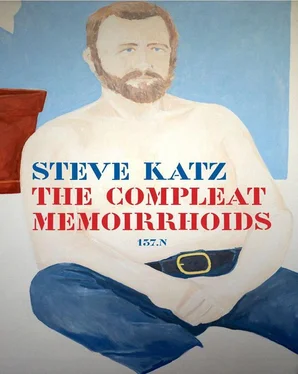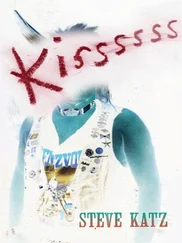After dinner they encourage us to go downstairs for a New Year’s bash, to a bar and lounge in the basement, where more contemporary rock music is being piped in. There are only a dozen or so round eyes, but suddenly the room fills with young Chinese, dressed in suits and ties, the girls in dark blue pinafores. When Sly and the Family Stone comes on, Rafael gets up to dance, and proceeds to get his freak on. I get up too and do my appreciation of rock and roll. The Chinese kids start to dance too, and seem to be enjoying themselves. Rafael couples tentatively at some distance with one of the girls. This begins to feel almost like a party, when suddenly, as mysteriously as they appeared, the Chinese crowd turns like a school of fish on some inaudible, invisible signal, and swoops back out the door. We round-eyes are alone. The music fades. The evening is over. Xmas dinner at the Shangri-La in Hangzhou has been accomplished.
It becomes obvious, finally, that they set this up as a laboratory for the great tourist rush they expect to attract as the doors of Chinese commerce swing open to the world. They anticipate that it’s coming, and will encourage it, and use us to prepare themselves. The turkey, by the way, was dry and tasteless, the gravy gummy, the cranberry sauce too sweet, the sweet potatoes like cement. The broccoli wasn’t bad.
Spek was the cheapest dish on the menu. I could afford a glass of beer and a plate of spek. I didn’t know what it was. I often order the stuff I don’t know thinking it might be a good surprise, and maybe give me an insight into the culture. This was in Munich. I had never been there before. I was on my way from Verona to Darmstadt, where I was scheduled to teach a class in literature for the University of Maryland, at the American Air Force base. Germany was difficult for me. I had trouble slipping out of the shadow of the Holocaust. Just hearing the language reminded me. Here I was in Munich, the site of the Hofbrauhaus, and Hitler’s putsch, a few miles from Dachau. This was where the Nazi party got started. I doubted that spek was kosher, but neither was I. The beer was good. The plate arrived at my table. At first I didn’t recognize what it was, but then I slowly got it. Spek was fat. I was served a plate of fat cubes. The fat was white as snow, except for the sprinkle of paprika. A sprig of parsley decorated the plate.
Across from the railroad station in Guangzhou a number of privately owned restaurants had recently sprung up. China was just opening to entrepreneurship. People sat happily at tables set on the concrete under and outside a canopy, everyone dipping morsels out of bubbling hotpots. The bouquet of scents made us practically pant for food. They seated us half under the canopy, and seemed really glad we landed at their restaurant, particularly for my son Rafael, who speaks excellent Mandarin, and even a little Cantonese. The hotpot came with dog already boiling up within it. You added fish, pork, beef, shrimp, vegetables in a certain perfect order. There was an unfamiliar though pleasant perfume to it, and it was savory, slightly sweet. I ate it without a thought. It was supposed to be illegal to cook dog, but you wouldn’t know it from the market near these restaurants. Dogs, they preferred the black chow, were available like chickens. You could buy them live, restrained in wicker baskets, or slaughtered and hanging from meathooks, with fur still attached, or skinned and cleaned, or chopped into parts, ready to cook. That was my only adventure into this cuisine, but I knew that from then on I would always know myself as a man who has eaten dog.
I ordered cuyo in Cuzco because it was the one thing on the menu I couldn’t identify. It was one of the more expensive items at a well patronized restaurant on the zocalo. It arrived at the table on its back in a bed of greens, its eyes roasted grey, its skin cracked and slowly oozing juices. Guinea pig juices. Cuyo was guinea pig. They served it whole. It lay there with its little feet clenched as if it was trying to hang on to its cuteness. Perhaps it was delicious. It was one of the few things I’ve been served in the world that I couldn’t eat.
Tribes had come down out of the mountains for a festival in Cuzco. They were heating and stirring cauldrons of chicha. Chicha was called aqa in Quechua, kusa in Aymala. The word in Spanish comes from chichal, to spit. Different tribes gathered under the galleries of the zocalo. This was like a chicha competition. Women chewed the corn, and their saliva acted as the fermenting agent. They sometimes added anise or other spices. The beverage was blue or greenish, depending on the color of the corn. It was mildly alcoholic. I took a cup. It wasn’t bad. Tamale vendors posted themselves around the square. The whole atmosphere was festive and colorful, upbeat, brightly costumed. I bought a tamale. The vendor said something I didn’t understand. Perhaps it was a warning. Perhaps he was asking if I wanted it hot or hotter. I took one bite and my life rushed flaming before my eyes. I thought I was soon dead. Avrum likes to tell what I looked like, launched around the zocalo, mouth screaming silently, like no one else he’d ever seen. If the endorphins kicked in, they were in cahoots with whatever pepper lurked in that tamale. My mouth and throat felt like an oven used to bake my tongue. My lips blistered hot, as if they would brand anyone I kissed. My eyes sizzled shut. Maybe I was being punished for once eating dog, or for not even tasting the cuyo. How could I survive? A nibble of spek might have been soothing. Avrum found a bottle of coke somewhere. I took it sip by sip. A llama looked me in the eye without compassion. If it spit on me I would have been grateful. Thank you, thank you gods of the USA, I thought, for the Coca Cola that started to wash my pain away.
In the same week that I peed on the electric fence, Alfred Partridge began to see me differently. I knew better than to pee on such a fence. I just didn’t see it hidden among the leaves. The shock threw me down in some bushes, where I lay for a few moments protecting the organ in cupped hands. It wasn’t charred, didn’t blister, but was half erect as if trying to determine for itself if this was a shock or a thrill. Alfred restrained a laugh and was mildly sympathetic. “You want to avoid doing that, son, yes yes. It must hurt.” He had found no reason yet to respect me, though I could see that he was happy to let me amuse him.
Later that week he took me up the hill to a hayfield he had recently mowed, and placed a pitchfork in my hands. The weather had been dry, and the hay was ready. He had raked it that morning. He used a horse-drawn rear delivery rake, no longer in general use. Side delivery rakes were faster and more efficient, appropriate for feeding a baler. They tangled the hay, however, and made it difficult for anyone trying to put in loose hay, to cock with a pitchfork. Alfred was one of the last farmers holding out for loose hay. He thought it made better feed, and he just liked a loose mow full of bounce.
He left me there, and told me to cock the windrows, which meant separating hay into piles the right size for throwing onto a wagon. I could see his skeptical grin. It was a huge field, and he had little faith in the city boy to get it even partially done. I looked across green hills at a beautiful day. The yearling heifers grazed in the pasture just below. Some were tawny, some black. They were all young, none of them bred yet. There was my favorite, Jingle, resting near the fence, chewing her cud. Did she even see me? She was beautifully within herself. What a great thing, I thought, what a relief to know you have a cud to chew. That was the high calling of the ruminant, to retreat within itself. A cool breeze brushed my face. I leaned for a moment on the pitchfork, blessed to be on this hilltop, to look out across the greeny Catskills. My job was repetitive and dumb. I was starting to understand myself, that I loved work that taxed my strong back over and over, and allowed me to space out and dream even as I kept going. That was my specialty, to space out and dream.
Читать дальше












